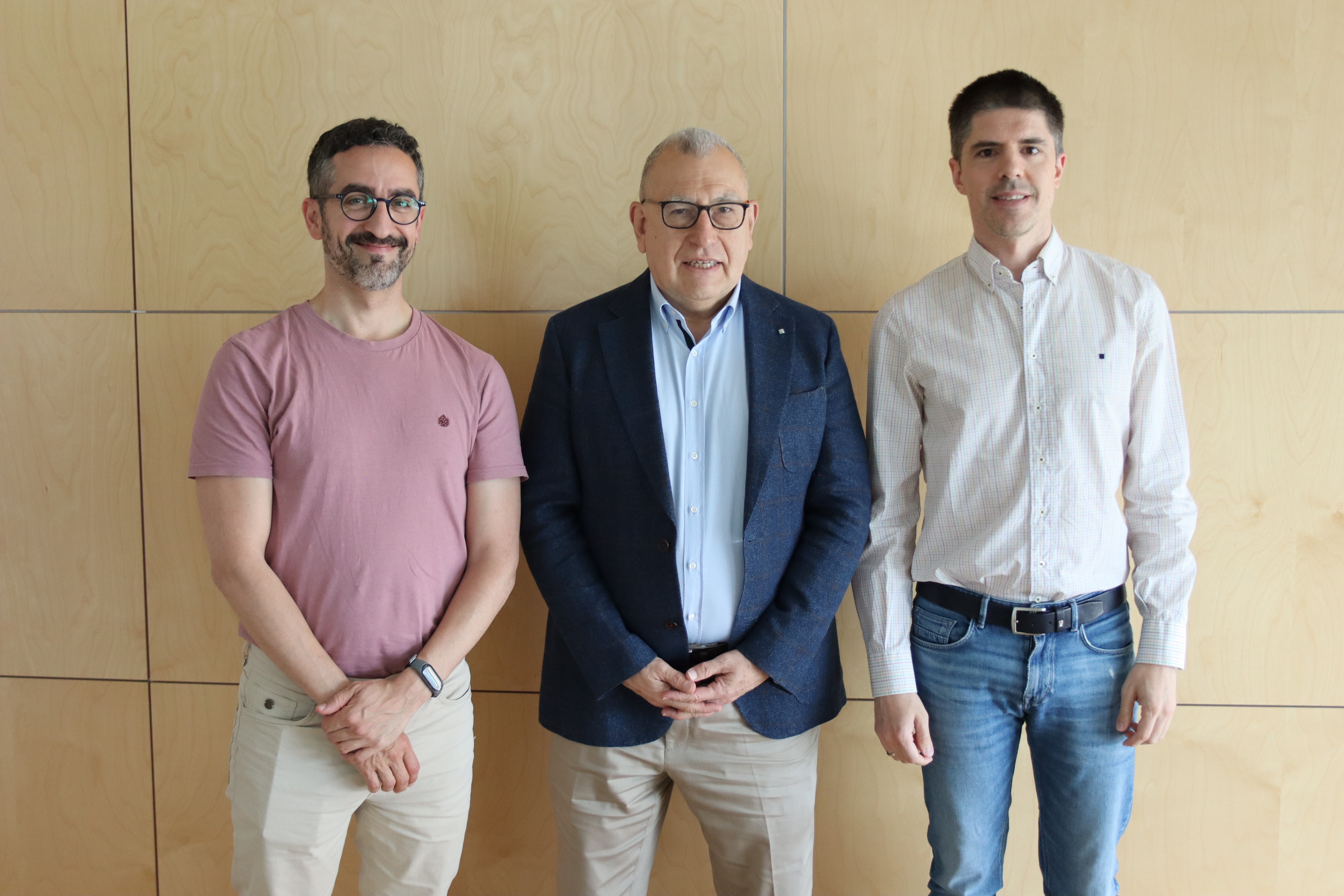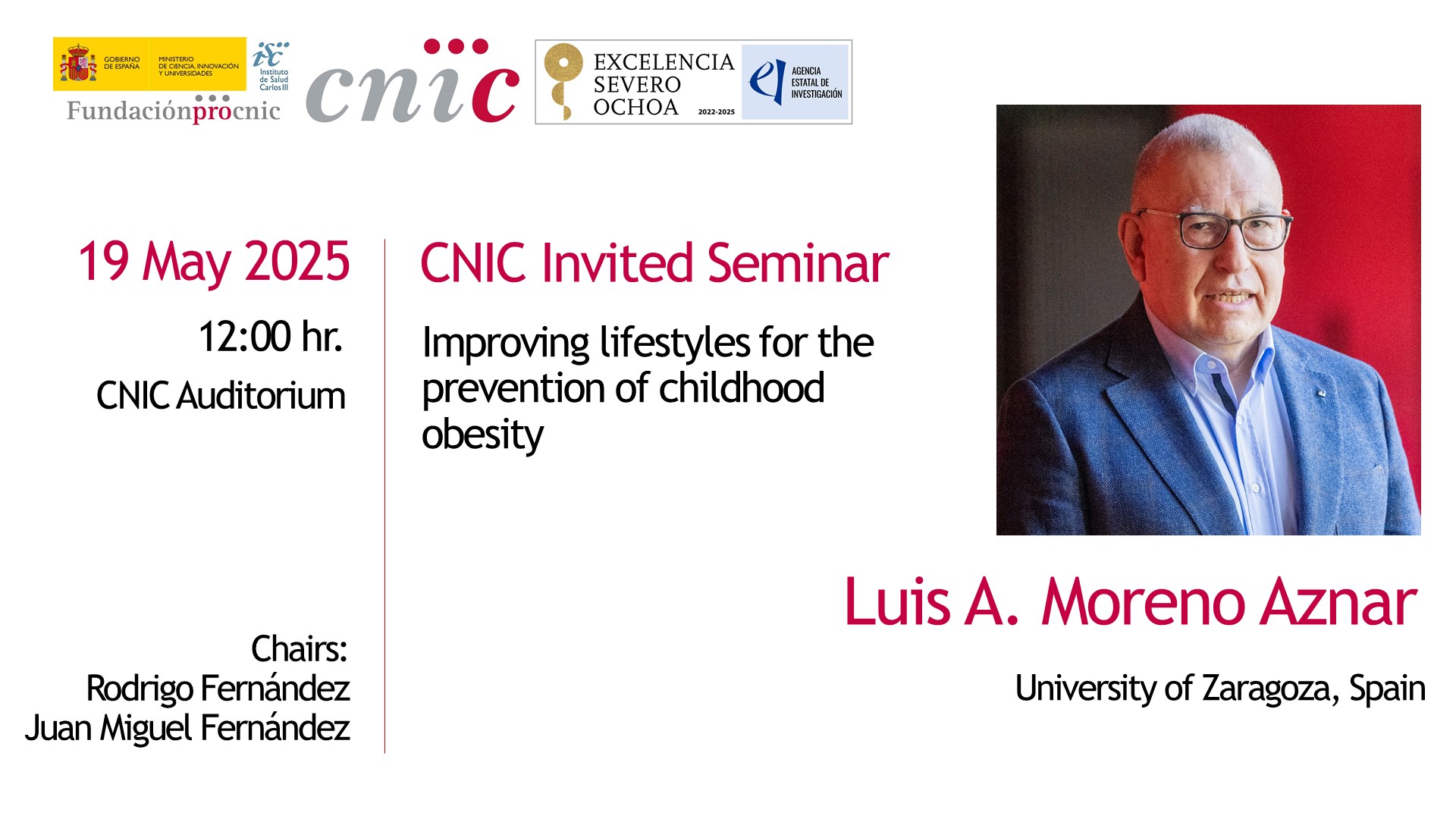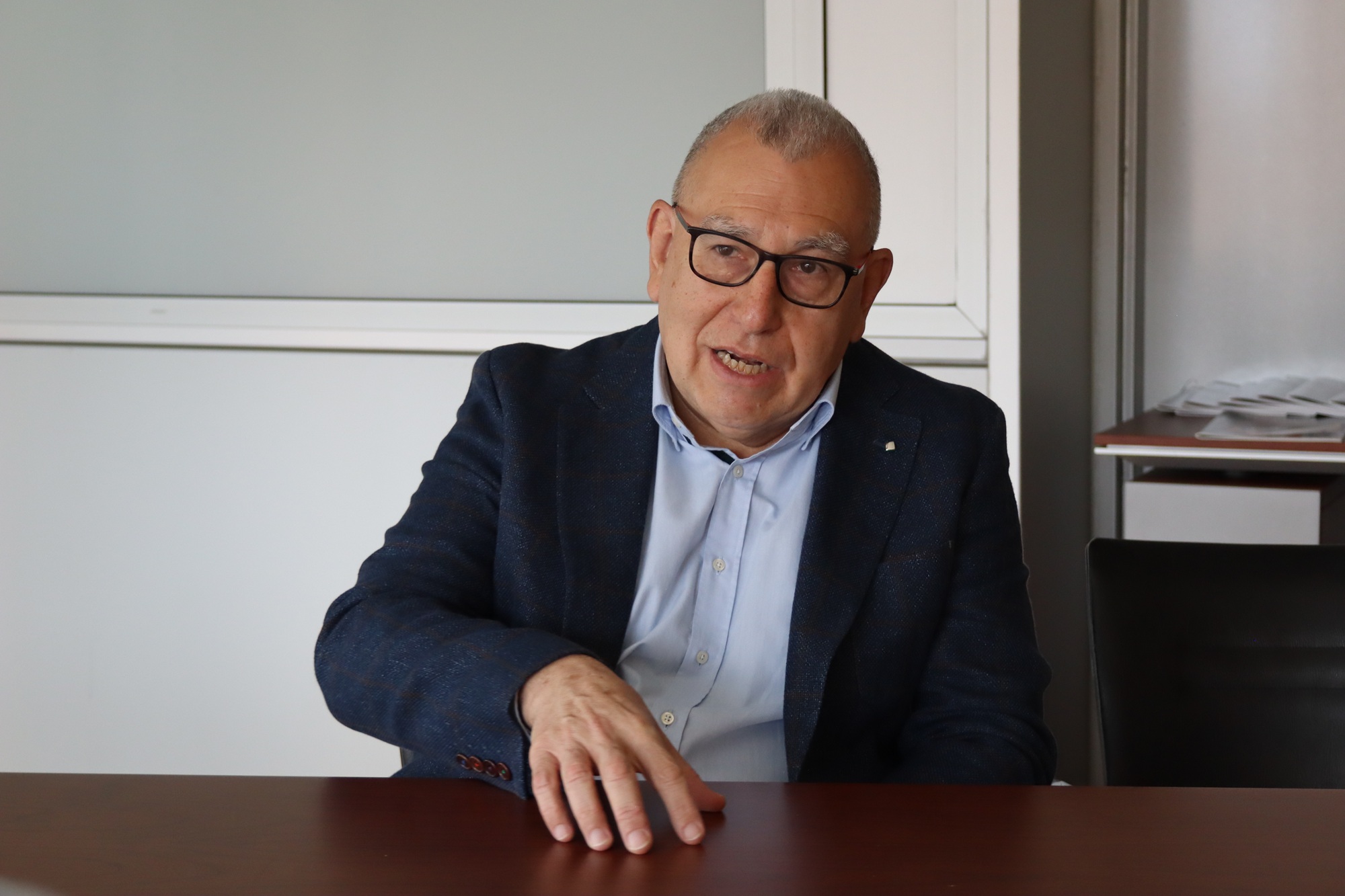Luis A. Moreno Aznar: “Obesity is a complex issue, but it can be prevented and improved if we act on all fronts”
Luis A. Moreno Aznar, Doctor in Medicine and Surgery with a diploma in Human Nutrition and Public and Community Health and has been a researcher for 43 years. For 6 years, he worked in the Paediatrics Department at Lille University Hospital (France) and in the Laboratory of Inherited Metabolic Disorders at the Pasteur Institute, Lille, where he developed his interest in epidemiological clinical research in the field of paediatric nutrition. His group, “Growth, Exercise, Nutrition and Development (GENUD)” (GIIS066) was already established and became a consolidated group with the Government of Aragón’s first call for accreditation of research groups, later joining IIS Aragón (the Aragón Health Research Institute). This facilitated the group’s inclusion in Carlos III Health Institute’s CIBERObn (Centre for Biomedical Network Research on the Pathophysiology of Obesity and Nutrition).
- The title of your talk is “Improving lifestyle to prevent obesity”. Why that approach?
Obesity is a global pandemic that particularly affects the paediatric population. Its causes are multiple: genetics, biology, socio-economic status, social factors and, above all, lifestyles. In the realm of healthcare, the factor where we have the greatest opportunity for intervention is precisely lifestyle.
But in order to modify it, we need to understand how lifestyle influences the development of obesity, and this must be analysed from the perspective of a lifecycle, which begins as early as conception. The foetal period, the first two years of life, infancy, and adolescence are key stages because that is when many habits are formed.
- Let’s talk about this pandemic. What is the current situation in Spain?
We have monitoring systems that give us quite precise data on childhood obesity. According to WHO criteria, around 40% of children in Spain between the ages of 6 and 9 are overweight or with obesity. Although this figure may be a slight overestimation, in any case, it affects at least a third of our children.
The prevalence amongst adults is a little lower and more frequent among women than men, although I don’t have the exact figures to hand.
It is important to speak of “children with obesity” and not “obese children” It’s about acknowledging we’re speaking about people, not labels. People with obesity participated in the recent European Congress on Obesity, and they highlighted something fundamental: obesity is a disease, not a personal decision.
- At what age can obesity begin to develop? And when did the rise in the number of cases start?
Some children present obesity for very clear genetic causes, although this is a very small fraction, around 5%. Most of them have a genetic predisposition, but what makes the difference is environment: the more adverse the environment, the earlier obesity appears, even within the first months or years of life.

Regarding the increase, the national study we conducted in 1984 found between 3% and 5% of children with obesity. We could not have imagined what the future would hold. The big change happened at the end of the 1980s and in the 90s and was common to all developed countries.
- What was the change due to? What were the determining factors?
There was not a single cause. Eating habits changed: we went from a traditional diet to one with more processed foods. Physical activity also declined: before, children played in the street a lot, nowadays that’s less common and has been replaced with sedentary activities, first television and now screens.
It’s the result of various elements: worse diet, less physical activity, less sleep and a more sedentary lifestyle. Each taken on its own might not be enough to cause obesity, but together they create a very favourable environment.
- And how can this situation be reversed?
There are two levels: research and intervention.
In research, the key is to design rigorous studies to identify the most effective strategies. It isn’t about saying “eat more fruit and vegetables”, it’s about planning well, having the right resources and, above all, correctly implementing programmes: knowing who the participants are, how to communicate the information, whether it manages to promote real change, etc.
We are also working on listening more to children and their families. Healthcare professionals often start off from a position of dominance. We know what science says and we try to impose it, but we forget to ask them how they experience that reality.
A surprising example that came from a qualitative study we did with adolescents was the issue of being home alone. Many children are alone after school, which gives them freedom but also generates stress and insecurity. They eat whatever they want and go to bed whenever they want, which influences their health habits.
- On political, social and industrial levels, what can be done?
From a political stance, we need more investment in prevention. There are good professionals and programmes, but they lack resources. Moreover, in Spain, healthcare is devolved from central government. Each regional autonomous community has its own programmes, which do not always have sufficient resources.
In terms of the food industry, without demonising, they do have a certain responsibility. The industry has improved the composition of certain products, particularly for brands aimed at more demanding consumers. But progress needs to be made in consumer information.
I think, for instance, the Nutri-Score system is useful but not perfect. The European Union should make efforts to agree a common system that is clear and easy to understand.
- And individual responsibility? What is the patient’s role in all of this?
It’s undeniable that we all have a certain responsibility for our health. But it’s also true that genetics explains up to 60% of the individual factors that influence obesity. For someone with a strong predisposition it is a difficult, constant struggle.
People who live with severe obesity have often tried to change many times, going on a diet, doing exercise, and they are exhausted. That’s why many of them resort to resources such as bariatric surgery or new drugs such as GLP-1 antagonists.
Such treatments can be useful, but they are not a magic wand. They work better if they go hand in hand with good habits. What’s more, they don’t work the same for everyone. And yes, they also have benefits that go beyond weight loss, particularly in improving metabolic factors.
- What do you think the short term perspectives for obesity are in Spain?
I’m moderately optimistic. Before the pandemic, we already saw signs of stabilisation and even a reduction in child obesity. COVID-19 was a hiatus, but I think that we can resume that trend.
However, we have to seriously tackle social inequalities, because people with less resources are more likely to suffer obesity: they eat lower quality foods, do less exercise, sleep less…
Here is a positive case: in a project with the Red Cross, we worked with vulnerable families who could not cover the costs of food. Some of them were only given financial help and basic guidance; others followed an educational programme on healthy lifestyles. And we saw that even in very difficult contexts, with the right support, families can improve.
- Do you have any practical advice for parents and educators?
Perseverance is key. Vegetables are a clear example. Many children don’t like them at first, but studies show that if they are offered them 10 or 12 times, eventually they accept them. The most common mistake is to stop trying at the second or third attempt.
We must encourage a food repertoire that is more varied and natural. And teach them to appreciate the real flavour of foods beyond salty and sweet.
It’s also essential to share family time: meals, games, outdoor activities. And to do so without reproach or assigning guilt, but with commitment. Because, yes, obesity is a complex issue, but it can be prevented and improved if we act on all fronts.
- Do you have any joint projects with the CNIC?
In collaboration with Dr Rodrigo Fernández’s group, I’m currently developing a project funded by the Carlos III Health Institute that aims to identify food consumption biomarkers and the dietary, physical activity, sedentary, and sleep patterns among different population groups. To do so, metabolomic analyses are being conducted in three different studies: Meli-Pop, I.Family y PESA.












